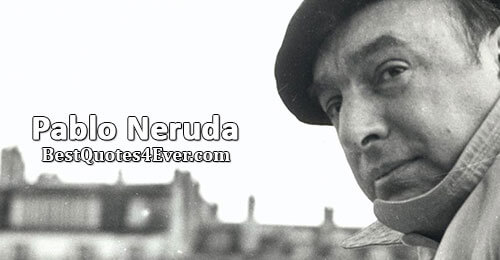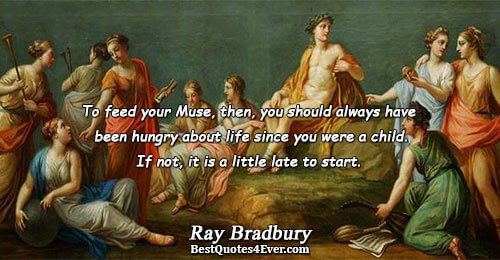Biography
Type: Poet, Diplomat
Born: July 12, 1904
Died: 23 September 1973 (aged 69), Santiago, Chi
Born Ricardo Eliecer Neftalí Reyes Basoalto in the town of Parral in southern Chile on July 12, 1904, Pablo Neruda led a life charged with poetic and political activity. In 1923 he sold all of his possessions to finance the publication of his first book, "Crepusculario" (“Twilight”). He published the volume under the pseudonym “Pablo Neruda” to avoid conflict with his family, who disapproved of his occupation. The following year, he found a publisher for "Veinte poemas de amor y una cancion desesperada" (“Twenty Love Poems and a Song of Despair”). The book made a celebrity of Neruda, who gave up his studies at the age of twenty to devote himself to his craft.
In 1927, Neruda began his long career as a diplomat in the Latin American tradition of honoring poets with diplomatic assignments. After serving as honorary consul in Burma, Neruda was named Chilean consul in Buenos Aires, Argentina, in 1933. While there, he began a friendship with the visiting Spanish poet Federico García Lorca. After transferring to Madrid later that year, Neruda also met Spanish writer Manuel Altolaguirre. Together the two men founded a literary review called "Caballo verde para la poesîa" in 1935. The outbreak of the Spanish Civil War in 1936 interrupted Neruda’s poetic and political development. He chronicled the horrendous years which included the execution of García Lorca in "Espana en el corazon" (1937), published from the war front. Neruda’s outspoken sympathy for the loyalist cause during the Spanish Civil War led to his recall from Madrid in 1937. He then moved to Paris and helped settle Spanish republican refugees in Chile.
Neruda returned to Chile in 1938 where he renewed his political activity and wrote prolifically. Named Chilean Consul to Mexico in 1939, Neruda left Chile again for four years. Upon returning to Chile in 1943, he was elected to the Senate and joined the Communist Party. When the Chilean government moved to the right, they declared communism illegal and expelled Neruda from the Senate. He went into hiding. During those years he wrote and published Canto general (1950).
In 1952 the government withdrew the order to arrest leftist writers and political figures, and Neruda returned to Chile and married Matilde Urrutia, his third wife (his first two marriages, to Maria Antonieta Haagenar Vogelzang and Delia del Carril, both ended in divorce). For the next twenty-one years, he continued a career that integrated private and public concerns and became known as the people’s poet. During this time, Neruda received numerous prestigious awards, including the International Peace Prize in 1950, the Lenin Peace Prize and the Stalin Peace Prize in 1953, and the Nobel Prize for Literature in 1971.
Diagnosed with cancer while serving a two-year term as ambassador to France, Neruda resigned his position, ending his diplomatic career. On September 23, 1973, just twelve days after the defeat of Chile’s democratic regime, the man widely regarded as the greatest Latin American poet since Darío died in Santiago, Chile.
Selected Bibliography:
- Viente poemas de amor y una cancion desesperada (1924)
- Anillos (1926)
- Residencia en la tierra (1933)
- Espana en el corazon: Himno a las glorias del pueblo en la guerra (1937)
- Alturas de Macchu-Picchu (1948)
- Canto General (1950)
- Los versos del capitan: Poemas de amor (1952)
- Las uvas y el viento (1954)
- Odas elementales (1954)
- Estravagario (1958)
- Cien sonetos de amor (1959)
- Cantos ceremoniales (1961)
- Plenos poderes (1962)
- Las piedras de Chile (1961)
- Memorial de Isla Negra (1964)
- Las piedras del cielo (1970)
- El mar y las campanas: Poemas (1973)
- La rosa separada (1973)
- El corazon amarillo (1974)
- Jardin de invierno (1974)
- Libro de las preguntas (1974)
- El habitante y su esperanza (1925)
- Discurso pronunciado con ocasion de la entrega del premio Nobel de literatura (1971)
- Confieso que he vivido: Memorias (1974)
- Correspondancia (1980)
- Paginas escogidas de Anatole France (1924)
- Visiones de las hijas de Albion y el viajero mental (1935)
- Romeo y Julieta (1964)
- Cuarenta y cuatro (1967)
- Fulgor y muerte de Joaquin Murieta: Bandido chileno injusticiado en California el 23 julio 1853 (1967)





